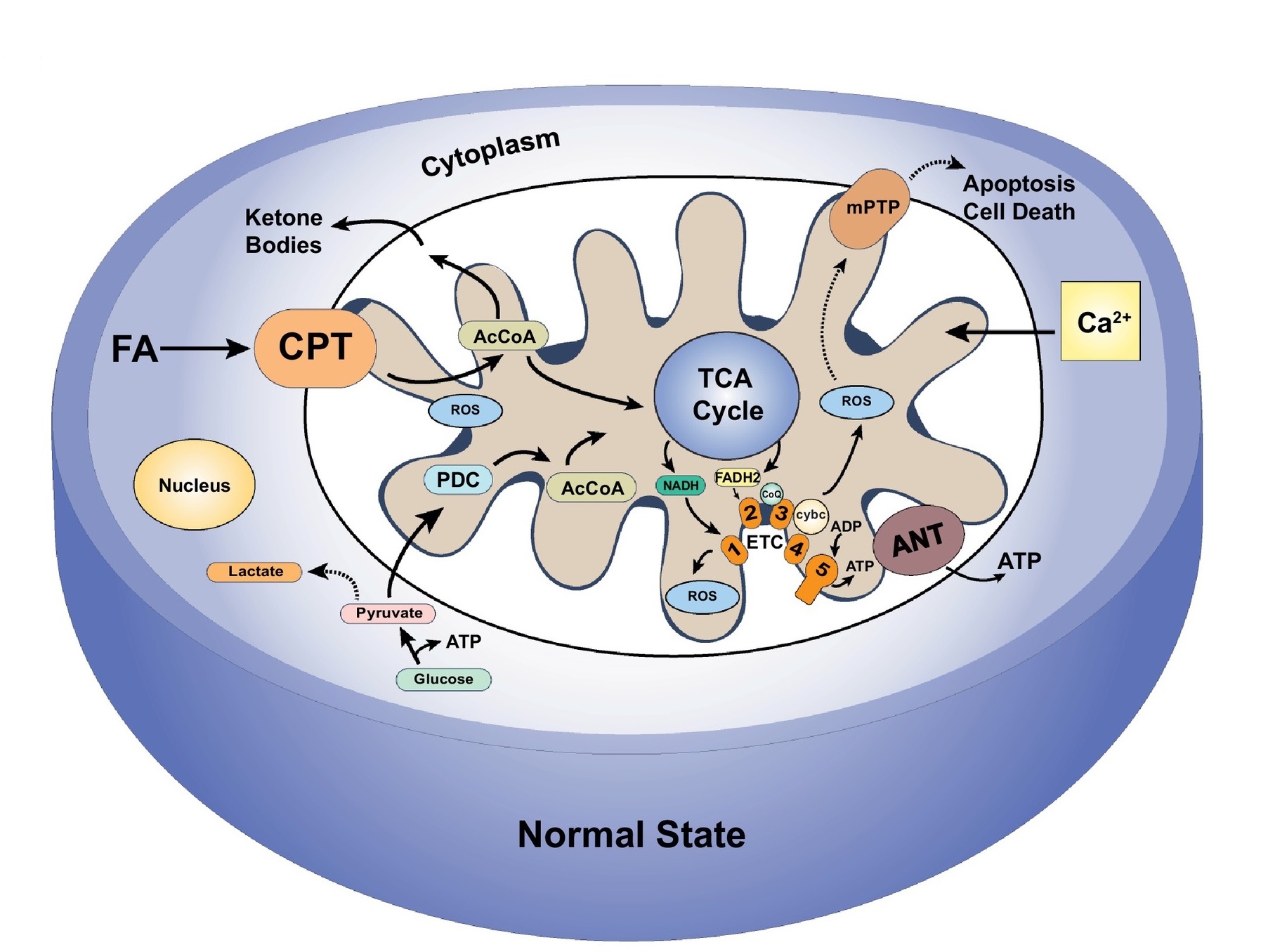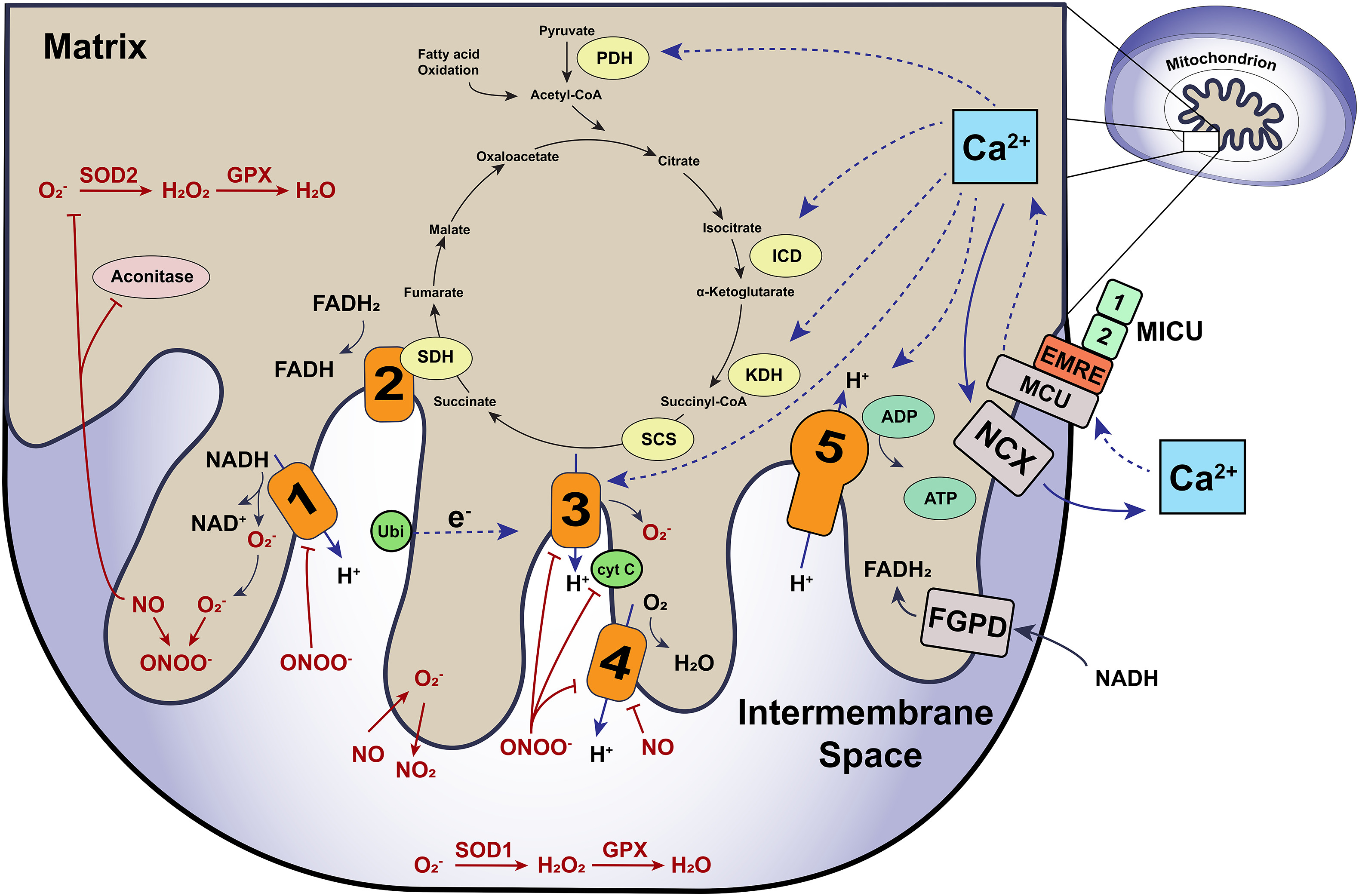Mitochondrial Function Analysis Service
Mitochondria are the powerhouses of the cell, responsible for energy synthesis and involved in key physiological processes such as oxidative phosphorylation, fatty acid β-oxidation, amino acid metabolism, and apoptosis. Mitochondrial function analysis focuses on evaluating mitochondrial function, aiming to reveal the crucial roles mitochondria play in cellular energy metabolism, oxidative stress, signal transduction, and apoptosis. Using high-resolution technologies, it systematically evaluates mitochondrial functional indicators such as membrane potential, respiratory chain activity, redox state, and ATP synthesis capacity.
Mitochondrial function analysis service is widely applied in fields such as metabolic diseases, neurodegenerative diseases, cancer research, and aging mechanisms. By analyzing changes in mitochondrial function, researchers can gain a deeper understanding of the role mitochondria play in disease occurrence and progression, assisting in disease mechanism research, target discovery, and the development of new therapies.

Castora, F J. Progress in Neuro-Psychopharmacology and Biological Psychiatry, 2019.
Figure 1. Mitochondria Are Metabolic Hubs.
Services at MtoZ Biolabs
Based on high-resolution analytical platforms, MtoZ Biolabs offers mitochondrial function analysis service focused on evaluating mitochondrial function. This service measures key functional indicators of mitochondria, such as membrane potential, respiratory chain activity, and ATP production. Through precise qualitative and quantitative analysis, it reveals the critical roles of mitochondria in cellular energy metabolism, oxidative stress, and apoptosis. The multidimensional data provided by the service helps researchers gain a deeper understanding of the impact of mitochondrial dysfunction, offering essential support for disease mechanism research and target discovery. Our service mainly includes the following aspects:
1. Membrane Potential Analysis
Mitochondrial membrane potential is a key indicator of mitochondrial health and function, reflecting the potential difference across the inner and outer membranes of the mitochondria. It directly influences ATP synthesis and cellular energy supply.
2. Oxidative Phosphorylation Analysis
Oxidative phosphorylation analysis is an important indicator for assessing mitochondrial function. It evaluates mitochondrial performance in energy metabolism by monitoring the oxygen consumption rate (OCR). The oxidative phosphorylation process involves the activity of the electron transport chain, generating ATP to provide energy for the cell.
3. ROS Analysis
This measures the level of reactive oxygen species (ROS) produced by the mitochondria, assessing their role in oxidative stress response and helping to understand cellular stress responses and damage mechanisms.
4. Calcium Ion Monitoring
Evaluates the mitochondrial ability to store and release calcium ions, helping to study their role in cellular signal transduction and metabolic regulation.
5. Permeability Transition Pore Analysis
By analyzing changes in mitochondrial membrane permeability, this analysis assesses the role of mitochondria in cellular stress response, cell death, and damage.

Castora, F J. Progress in Neuro-Psychopharmacology and Biological Psychiatry, 2019.
Figure 2. The Roles of Calcium and ROS/RNS in Mitochondrial Energy Production.
Analysis Workflow
1. Sample Preparation and Mitochondrial Isolation
Efficiently isolate mitochondria from cell or tissue samples, ensuring their purity and integrity, providing reliable samples for subsequent analysis.
2. Mitochondrial Function Assessment
Evaluate mitochondrial energy metabolism, membrane potential, respiratory function, and other biological characteristics through a series of tests.
3. Oxidative Stress and ATP Production Analysis
Analyze mitochondrial function changes in oxidative stress response and ATP production processes, assessing their impact on cellular energy metabolism.
4. Data Analysis and Interpretation
Use multidimensional statistical and bioinformatics analysis to provide comprehensive data on mitochondrial function, helping to understand their role in cellular physiology and pathology.
Sample Submission Suggestions
1. Sample Type
Suitable for animal cells, tissue samples, and isolated mitochondria. It is recommended to provide an adequate amount of sample to ensure the purity and representativeness of mitochondrial isolation.
2. Sample Preservation and Transportation
Samples should be stored at −80°C immediately after processing and transported on dry ice to ensure cold chain transport, avoiding repeated freeze-thaw cycles to preserve mitochondrial function and structure.
3. Additional Notes
If the sample has undergone partial processing (such as cell homogenization or initial mitochondrial isolation), please provide relevant processing information to optimize the subsequent analysis workflow and ensure data consistency.
Service Advantages
1. High Sensitivity and Precision Analysis
Using advanced high-resolution analytical platforms, we ensure highly sensitive evaluation of mitochondrial function, providing accurate quantitative and qualitative data.
2. Comprehensive Mitochondrial Function Assessment
A comprehensive analysis of mitochondrial performance in energy metabolism, membrane potential, respiratory function, and ATP production, revealing its critical role in cellular processes.
3. Multidimensional Data Interpretation
Combining multidimensional statistical and bioinformatics tools, we provide in-depth analysis of mitochondrial function, offering comprehensive results and biological significance explanations.
4. Customized Service Plans
We offer tailored experimental designs and data analysis plans according to the client's research needs, meeting the requirements of various research fields.
Applications
1. Metabolic Disease Research
By analyzing mitochondrial function, we reveal the mechanisms of mitochondrial dysfunction in metabolic diseases, aiding in the identification of potential therapeutic targets.
2. Neurodegenerative Disease Exploration
The mitochondrial function analysis service can be used to study changes in mitochondrial function in neurodegenerative diseases, uncovering the regulatory role of mitochondria in the neurodegeneration process.
3. Cancer Research
By analyzing changes in mitochondrial function in cancer cells, we explore the impact of mitochondrial metabolic reprogramming on cancer development, assisting in the development of new biomarkers and targeted therapies.
4. Aging and Oxidative Stress Research
The mitochondrial function analysis service can be used to study changes in mitochondrial function during aging, revealing the key role of oxidative stress in the aging process and providing theoretical support for anti-aging research.
FAQ
Q1: Is Customized Analysis Available?
A1: Absolutely. We offer personalized services, supporting various sample types, processing conditions, and data analysis strategies. We can tailor the experimental plan according to your specific research needs.
Q2: Can Mitochondrial Function Analysis Be Combined with Other Omics Analyses?
A2: Yes. We provide multi-omics integrated analysis services, including mitochondrial proteomics, metabolomics, and more. This helps you explore the multidimensional roles of mitochondria in cellular function.
Deliverables
1. Comprehensive Experimental Details
2. Materials, Instruments, and Methods
3. Data Analysis, Preprocessing, and Estimation
4. Bioinformatics Analysis
5. Raw Data Files
How to order?







